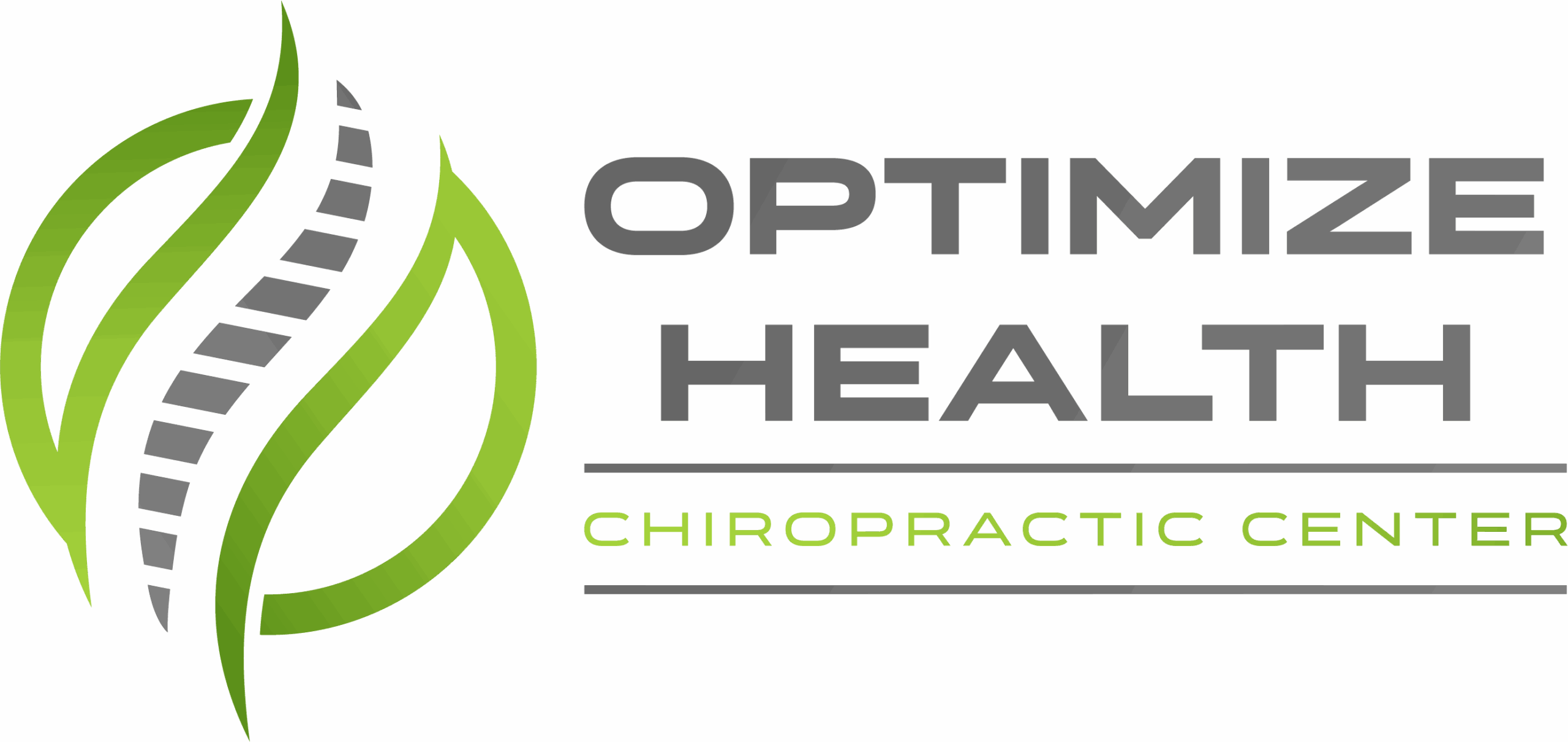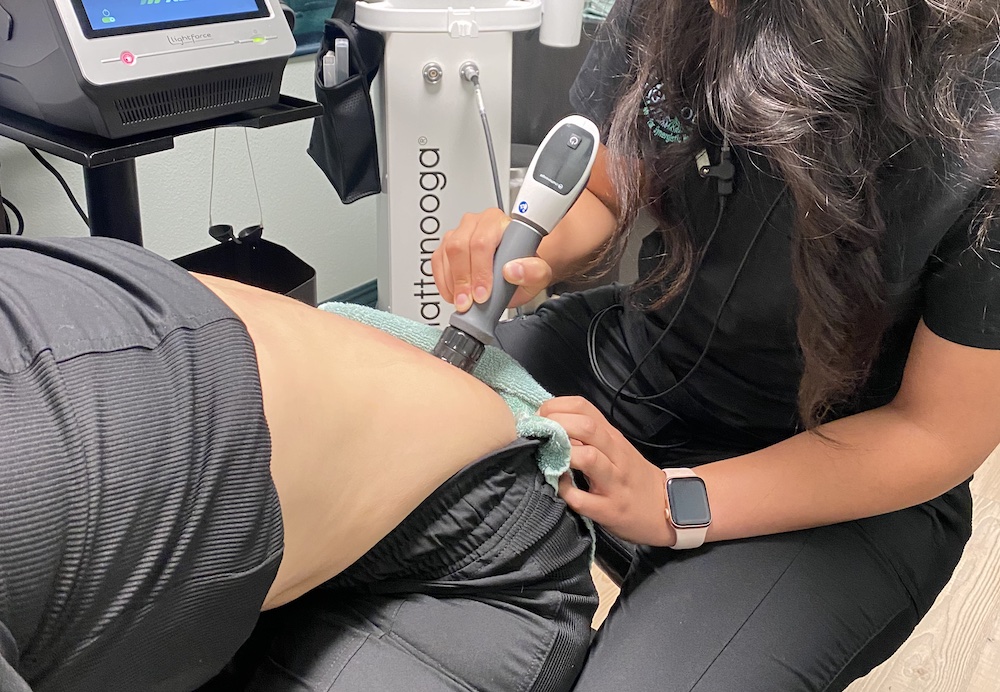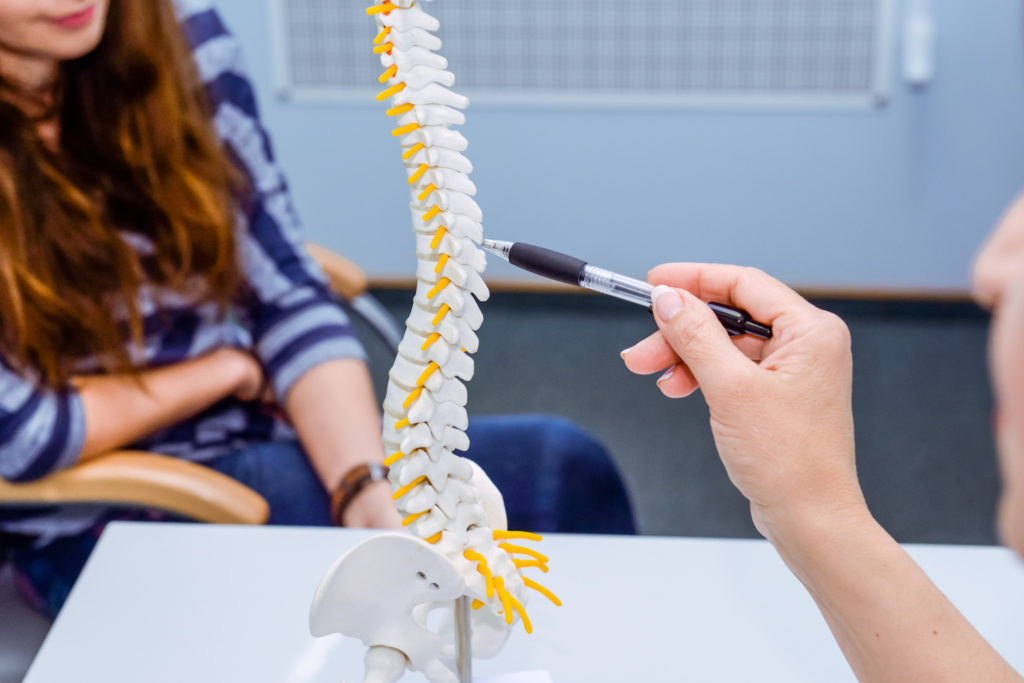Chronic pain can often feel like a relentless companion, but as your local chiropractor, I want to assure you that you don't have to face this journey alone. Embracing a holistic approach to healing—one that incorporates chiropractic care, nutrition, mindfulness, and community support—can significantly enhance your quality of life and help alleviate your pain.
It's important to recognize the impact that lifestyle changes can have on your recovery. As we work together, you may discover valuable insights about your body and well-being that can lead to lasting relief. What if the key to overcoming your pain lies in adjustments and practices that you haven't yet explored? My goal is to guide you through these options and empower you to reclaim your life from chronic pain. Let's embark on this wellness journey together, one step at a time.
Understanding Chronic Pain
Chronic pain can often feel like an unwelcome guest that overstays its welcome, lingering long after any initial injury has healed. As your local chiropractor, I want to help you understand this condition and how it can impact your daily life.
Unlike acute pain, which serves a specific purpose by alerting you to injury or illness, chronic pain can last for months or even years, becoming a complex issue that affects both your physical health and emotional well-being.
To truly grasp chronic pain, it's essential to recognize its multifaceted nature. It's not just about the physical sensations you experience; it's deeply connected to your nervous system and how your body interprets pain signals.
Factors such as genetics, your psychological state, and your environment can all influence how you perceive and manage pain. You may have noticed that stress, anxiety, or fatigue can exacerbate your symptoms, which makes it crucial to consider your mental health alongside your physical condition.
It's also vital to understand that chronic pain isn't a sign of weakness or failure. You aren't alone in this journey; millions of people are navigating similar challenges.
As a chiropractor, I encourage you to explore the underlying causes of your pain. This exploration can empower you to take charge of your wellness journey.
The Importance of a Holistic Approach
As a local chiropractor, I want to emphasize the importance of understanding the mind-body connection when it comes to managing chronic pain. Many of my patients may not realize how interconnected their physical health is with their mental and emotional well-being.
That's why I encourage you to consider a holistic approach to your healing journey. Incorporating proper nutrition into your daily routine can significantly impact your pain levels and overall health.
Additionally, effective stress management techniques, such as mindfulness or relaxation exercises, can further support your recovery. By addressing both the physical and emotional aspects of your health, you empower yourself to achieve better outcomes.
Chiropractic care isn't just about spinal adjustments; it's about promoting overall wellness. Together, we can explore a comprehensive plan that includes natural healing practices tailored to your unique needs.
Mind-Body Connection
As a chiropractor, I want to emphasize the importance of the mind-body connection in managing chronic pain, and how a holistic approach to wellness can significantly benefit you.
When you're experiencing pain, it can feel overwhelming, but it's crucial to recognize how your mental and emotional states can directly affect your physical health. Stress, anxiety, and negative emotions often exacerbate pain, which is why it's essential to consider not just the physical aspects of your well-being, but also the psychological side.
Incorporating mindfulness practices, such as meditation or deep breathing, can help you become more aware of your thoughts and feelings. This awareness is key in managing stress and fostering a more positive mindset, both of which can lead to a reduction in pain perception.
Additionally, engaging in activities like yoga or tai chi can improve your mind-body connection by promoting relaxation and facilitating gentle movement, which helps to alleviate tension in your body.
As your chiropractor, I encourage you to embrace these practices alongside your chiropractic care. Together, we can work towards a comprehensive approach that addresses both your physical and mental health, ultimately enhancing your overall quality of life.
Nutrition and Healing
As a local chiropractor, I want to emphasize that your journey toward wellness extends beyond just the mind-body connection; nutrition is equally crucial for healing and overall health.
What you choose to eat can significantly influence your pain levels, energy, and emotional well-being. By nourishing your body with the right foods, you're not just providing fuel for daily activities; you're also facilitating your body's natural healing processes.
Here are three important nutritional considerations to keep in mind:
1. Anti-Inflammatory Foods: It's beneficial to include foods rich in omega-3 fatty acids, such as salmon and walnuts, along with a colorful variety of fruits and vegetables in your diet. These foods can help reduce inflammation, which is often a contributing factor to chronic pain.
2. Hydration: Staying adequately hydrated is vital for your overall health. Water plays a key role in digestion and nutrient absorption, and it can even help alleviate discomfort.
I recommend aiming for at least eight glasses of water a day, but feel free to adjust that based on your activity level and individual needs.
3. Balanced Diet: Strive for a well-rounded diet that includes a mix of proteins, healthy fats, and whole grains. This balance ensures that your body receives all the essential nutrients it requires for optimal functioning and recovery.
By paying attention to these nutritional aspects, you can support your body's healing journey and enhance the benefits of your chiropractic care.
Together, we can work toward your overall health and wellness goals.
Stress Management Techniques
As a local chiropractor dedicated to your holistic wellness, I want to emphasize the significant connection between stress and chronic pain. Many of my patients may not realize that stress can trigger the release of cortisol in your body, which can increase your sensitivity to pain. That's why incorporating effective stress management techniques into your life is crucial for your overall health and well-being.
One of the most beneficial practices I recommend is mindfulness. Simple techniques like meditation and deep breathing exercises can make a remarkable difference in how you manage pain. By dedicating just a few minutes each day to focus on your breath or participate in guided meditation, you can cultivate a sense of calm that helps you respond to discomfort more effectively.
In addition, physical activity is key to reducing stress and enhancing your mood. Engaging in regular exercise releases endorphins, the body's natural stress relievers. I encourage you to find activities you genuinely enjoy, whether it's walking, practicing yoga, or even dancing—anything that gets you moving and lifts your spirits.
Don't underestimate the importance of maintaining strong social connections. Sharing your experiences with friends or family members can provide much-needed emotional support and help alleviate feelings of loneliness that often accompany chronic pain.
Lastly, I can't stress enough the significance of quality sleep. Prioritizing good rest is fundamental in managing both stress and pain levels. Establishing a calming bedtime routine and aiming for 7-9 hours of sleep each night can greatly enhance your overall health.
Lifestyle Changes for Pain Relief
As a local chiropractor, I often see how simple lifestyle changes can significantly help in managing chronic pain. Many of my patients are surprised to learn that by adjusting a few daily habits, they can experience considerable relief.
Here are three key lifestyle changes I recommend for those looking to ease their discomfort:
1. Regular Exercise: Incorporating low-impact activities such as walking, swimming, or yoga into your routine can be incredibly beneficial. These exercises not only help strengthen your muscles but also enhance flexibility.
Even short, consistent workouts can trigger the release of endorphins, which act as natural pain relievers. I often encourage my patients to find activities they enjoy, making it easier to stay active.
2. Balanced Diet: Nutrition plays a crucial role in pain management. Focusing on a balanced diet that includes anti-inflammatory foods—such as a variety of fruits, vegetables, whole grains, and healthy fats—can make a noticeable difference.
Additionally, staying well-hydrated is vital; water supports joint function and overall health, which can help minimize pain levels.
3. Sleep Hygiene: Quality sleep is essential for recovery and can profoundly affect your pain experience. I advise my patients to establish a consistent sleep schedule, develop a calming bedtime routine, and ensure their sleeping environment is comfortable and conducive to rest.
Good sleep allows your body to repair and regenerate, ultimately reducing pain sensitivity.
Mindfulness and Emotional Well-Being
As your local chiropractor, I'd like to share how mindfulness practices can be a valuable tool in managing chronic pain and enhancing your emotional well-being. Many of my patients find that by focusing on the present moment, they can create a buffer against the stress and anxiety that often accompany their pain. This approach doesn't involve ignoring the pain; rather, it's about acknowledging it without allowing it to take control of your thoughts and feelings.
When you incorporate mindfulness into your routine, you learn to observe your pain with a non-judgmental perspective. Techniques such as deep breathing, meditation, and body scans are great ways to reconnect with your body and cultivate a sense of calm. You might discover that simply sitting quietly and paying attention to your breath can help you release tension and create space for healing.
Additionally, practicing mindfulness can foster a greater sense of self-compassion. It's common for those dealing with chronic pain to experience feelings of frustration, anger, or hopelessness. By engaging in mindfulness, you can shift your focus from self-criticism to understanding and accepting your experiences. This shift can significantly enhance your emotional resilience, making it easier to cope with pain.
Incorporating mindfulness into your daily routine doesn't have to be a time-consuming endeavor. Even just a few minutes of focused attention can yield positive results. As you become more aware of your thoughts and feelings, you may notice a reduction in stress and an improvement in your overall emotional health.
Effective Pain Management Techniques
As a local chiropractor, I want to emphasize the importance of incorporating mindfulness and meditation practices into your pain management routine.
These techniques can greatly enhance your overall well-being by helping you manage stress and increase your awareness of bodily sensations.
Additionally, physical therapy, often integrated into chiropractic care, can provide substantial benefits, aiding in the restoration of strength and mobility.
Let's take a closer look at how these natural healing methods can support your journey toward effective pain management.
Mindfulness and Meditation Practices
As a local chiropractor, I want to share with you the powerful impact that mindfulness and meditation can have on your experience with chronic pain. These holistic practices not only aid in pain management but also contribute to your overall well-being.
Here are three key benefits that you may find particularly helpful:
- Reduced Stress: Mindfulness techniques can significantly lower your body's stress response, which often heightens the perception of pain. By training yourself to focus on the present moment, you can effectively reduce anxiety and cultivate a calmer mental state, paving the way for better healing.
- Increased Pain Tolerance: Engaging in regular meditation can shift how you perceive pain. Rather than seeing pain as a threat to be feared, you learn to observe it without judgment. This shift in perspective can empower you to cope with pain more effectively, enhancing your overall treatment experience.
- Enhanced Emotional Resilience: Practicing mindfulness helps you develop a deeper understanding of your emotions. This knowledge allows you to respond to pain with kindness and compassion, rather than frustration. Such an emotional transformation can greatly improve your journey toward managing chronic pain.
To begin incorporating these practices into your routine, find a quiet space where you can spend just a few minutes each day focusing on deep breathing or following a guided meditation.
Over time, you may notice a significant change in how you experience and respond to chronic pain, helping you reclaim your life and enhance the benefits of your chiropractic care.
Physical Therapy Benefits
Understanding pain management is essential, and one effective approach is through chiropractic care. When you visit a chiropractor, you'll receive personalized treatment plans designed specifically for your individual needs. Your chiropractor will evaluate your condition, identify areas of tension or misalignment, and create a tailored regimen that focuses on restoring balance and function to your body. This proactive method can significantly alleviate pain and enhance your overall physical capabilities.
Chiropractic treatment often includes hands-on techniques, such as spinal adjustments and soft tissue manipulation, which can relieve tension and improve blood flow. You'll also learn about proper body mechanics and posture, equipping you with the knowledge to avoid movements that may worsen your discomfort. Education is a vital component of chiropractic care; your chiropractor will empower you with insights about your condition, enabling you to take charge of your healing journey.
Additionally, chiropractic care may incorporate complementary therapies like heat, ice, or therapeutic exercises that provide immediate relief. By committing to regular chiropractic sessions, you not only work towards reducing pain but also cultivate a stronger, more resilient body.
If you're ready to pursue a life free from chronic pain, consider incorporating chiropractic care into your wellness routine. You might be surprised by the profound impact it can have on your overall health and well-being.
Building a Support System
Creating a robust support system is crucial for effectively managing chronic pain, and as your local chiropractor, I want to emphasize how important it's to surround yourself with the right people and resources.
This journey can be challenging, but having a solid support system can help you feel understood and empowered. Here are three key components to consider when building your support network:
1. Family and Friends: Start by reaching out to your loved ones. Share your experiences and let them know how they can assist you during this time.
Whether it's helping with daily tasks, listening to your concerns, or simply spending quality time together, their involvement can have a tremendous impact on your healing process.
2. Healthcare Professionals: Your healthcare team plays a pivotal role in your wellness journey. Beyond just visiting me for chiropractic adjustments, consider collaborating with other healthcare providers, including physical therapists, pain management specialists, or nutritionists who can address your specific needs.
This multidisciplinary approach can offer you tailored advice and resources that complement your chiropractic care.
3. Support Groups: Engaging in a chronic pain support group can be a valuable addition to your support system. These groups provide a safe environment to share your journey and connect with others who face similar challenges.
You'll discover that you're not alone in this, and you may also gain new insights and coping strategies that can enhance your overall well-being.
Building a support system requires time and effort, but it's incredibly rewarding. By nurturing these connections, you'll establish a network that encourages and inspires you on your path to wellness.
Conclusion
As your local chiropractor, I want to guide you on your journey to saying goodbye to chronic pain. It's essential to understand that change is not only possible but within your reach. A holistic approach is key—this means integrating healthy lifestyle choices, practicing mindfulness, and prioritizing your emotional well-being.
Chiropractic care plays a vital role in actively managing your pain and restoring your body's natural balance. By addressing the root causes of discomfort, we can work together to improve your overall health and enhance your quality of life. Remember, you don't have to navigate this journey alone; I encourage you to build a supportive network.
Don't hesitate to reach out for help or to share your experiences. We're here to support you every step of the way. Start today and take those important steps toward a brighter, pain-free future through natural healing and chiropractic care.



